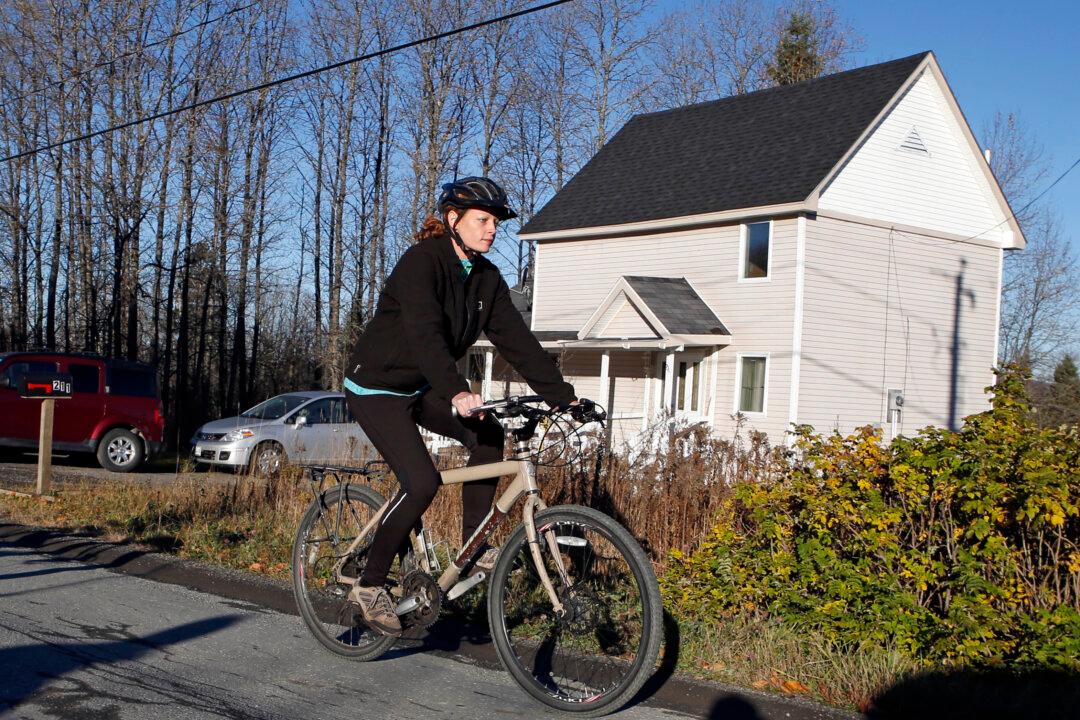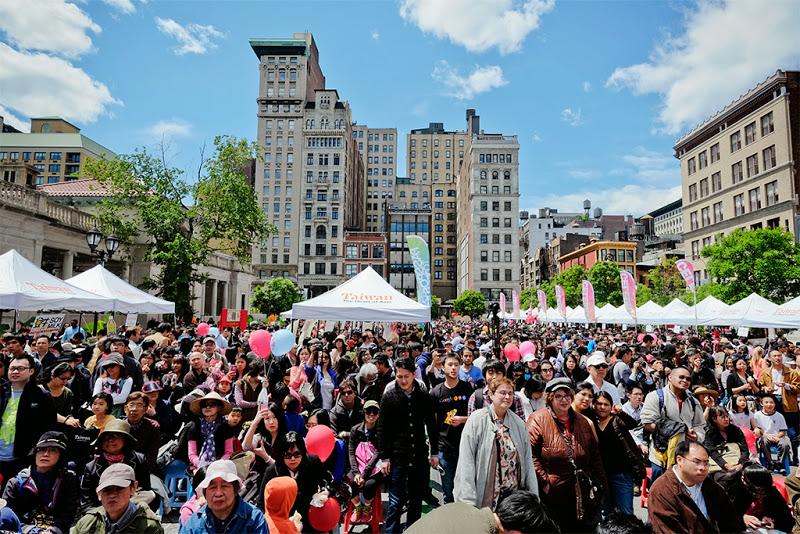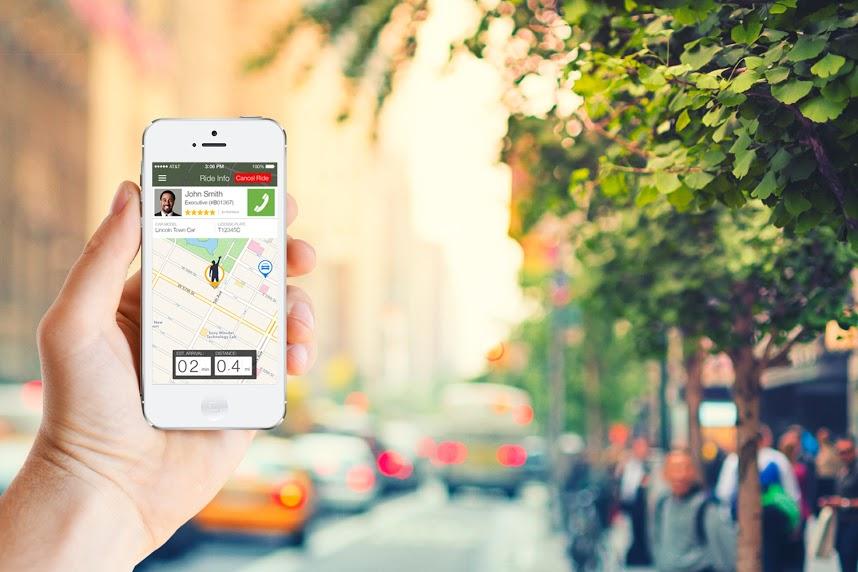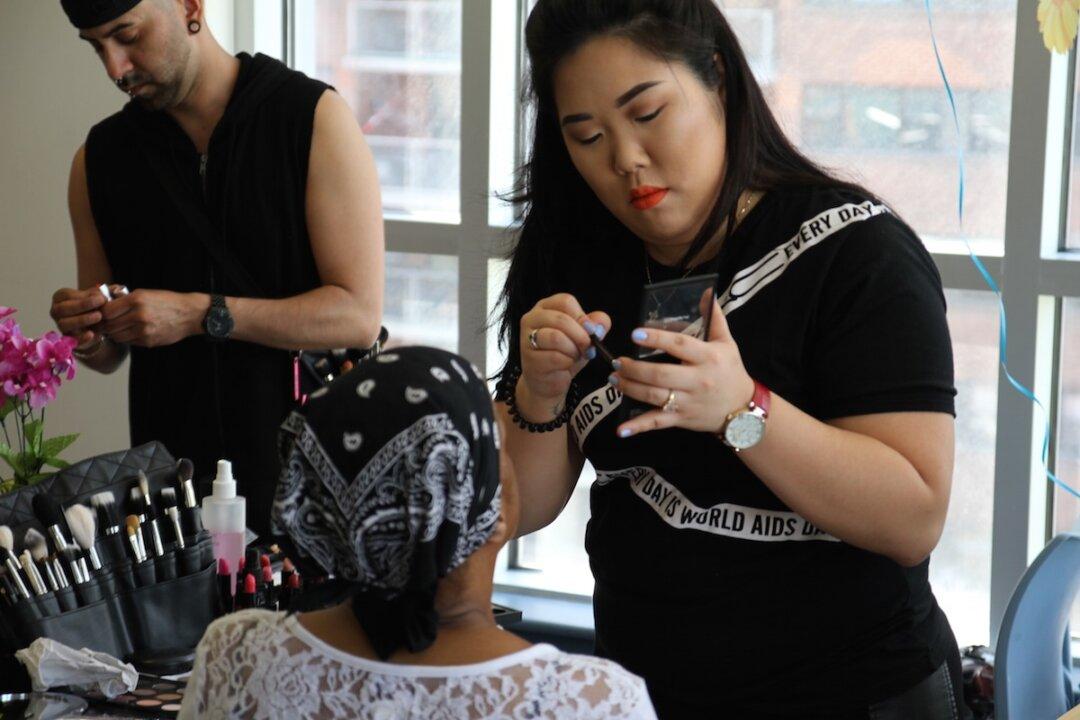A nurse made good on her promise to defy Maine’s voluntary quarantine for health care workers who treated Ebola patients in West Africa by biking away with her boyfriend from her Fort Kent house Thursday morning.
In 40-degree weather, state police followed her, monitoring her actions. Authorities plan to take her to court, to confine her to her home.
Kaci Hickox is on strike against the policy of quarantining, whether it be voluntary or forced.
“I am not going to sit around and be bullied by politicians and forced to stay in my home when I am not a risk to the American public,” she said a day earlier.
Her views are supported by many scientists and politicians, including President Barack Obama and U.N. Secretary-General Ban Ki-moon. They have all said a forced quarantine policy might deter doctors from volunteering in West Africa, where the U.N. has said 5,000 more health care workers are needed.
Hickox’s view is on one side of a spectrum of opinions about the risks of Ebola, while New York Gov. Andrew Cuomo and New Jersey Gov. Chris Christie’s policy of extreme caution against the deadly virus is on the other side.
The civil disobedience the Maine nurse has now demonstrated gets to the heart of the issue. Without the legal authority to prohibit a high-risk individual’s movements, Hickox may go wherever she wants—and it is possible she could develop Ebola symptoms and become contagious while out in public.
[aolvideo src=“http://pshared.5min.com/Scripts/PlayerSeed.js?sid=1759&width=480&height=350&playList=518489411&responsive=false&playerActions=16559”]
Too Many Food Runs
Can people be trusted to stay put at home, and is the public risk worth it if this trust is violated? Cuomo and Christie don’t think so.
As an example, they pointed to NBC News medical correspondent Nancy Snyderman, who violated her voluntary quarantine in New Jersey to get take-out. Snyderman’s cameraman had contracted Ebola while they filmed Liberia’s epidemic.
It is also unclear whether New York resident Dr. Craig Spencer, who also worked with Doctors Without Borders, was planning to tell authorities where he had gone the day before his fever developed.
As the first person to contract Ebola and start showing symptoms in New York, Spencer may have feared causing panic. Police used his Metrocard swipes and credit card to track his movements, which included riding multiple subway lines, dinner at a meatball shop, and games at a Williamsburg bowling alley.
“Voluntary quarantine doesn’t work,” said Cuomo at last Friday’s press conference. “You go into the subway, or the store, and you could affect hundreds and hundreds of people.”
[caption id=“attachment_1045970” align=“alignnone” width=“674”] Quarantined nurse Kaci Hickox meets with prominent New York civil rights attorney Norman Siegel, seated, while in an isolation tent at the University Hospital in Newark, N.J., on Oct. 26. (AP Photo/Steven Hyman)[/caption]
Quarantined nurse Kaci Hickox meets with prominent New York civil rights attorney Norman Siegel, seated, while in an isolation tent at the University Hospital in Newark, N.J., on Oct. 26. (AP Photo/Steven Hyman)[/caption]Constant Vigilance
People arriving from West Africa are funneled into five U.S. airports. Two of the five are located in New York and New Jersey: John F. Kennedy International Airport and Newark Liberty.
Travelers from West Africa undergo screening from customs, the Centers for Disease Control and Prevention (CDC), and state health officials. Screening measures include full interviews and temperature checks.
People who show symptoms of Ebola are sent to a hospital, while those who don’t show symptoms, but who have had contact with Ebola patients in West Africa, face a mandatory quarantine in New York and New Jersey at home for 21 days.
Those who are not at risk will still be monitored by officials, and have their temperatures checked for 21 days.
States’ Rights
By ordering enforceable mandatory quarantines, rules in New York and New Jersey are stricter than federal requirements, and those followed in most other states.
The CDC does not require quarantine unless someone is at high risk of contracting Ebola, and even then the recommendation is for voluntary home quarantine.
Yet, under New York and New Jersey policy, many medical professionals who volunteer in West Africa will be forcibly quarantined upon return.
Last Friday, Hickox became the first person quarantined under the new policy after flying into Newark Liberty Airport from Sierra Leone, where she volunteered with emergency medical aid organization Doctors Without Borders.
She was deemed at high risk for getting Ebola and was forced to live in a tent in a parking lot outside of a Newark hospital for four days.
While state authorities deliberated what to do with her, they didn’t inform her of what was happening. Hickox complained that she had been treated like a criminal and threatened to sue.
By looking at what goes on in Maine, it’s clear that what caused the showdown between New Jersey authorities and Hickox was not simply an uncomfortable tent stay but the clashing of stubborn views from both ends.
Hickox’s view is that medical professionals without symptoms are not contagious, so they should be able to walk around without restriction.
This view, however, ignores the panic of the people, which is more of a politician’s concern. Mainers stressed out when they learned Hickox was returning to Fort Kent, worried for their own safety.
At Its Root
Even so, Ebola is still a West African epidemic in the first place.
While defending public safety in their states, which so far has only one confirmed infection, Cuomo and Christie might be exacerbating the epidemic in West Africa, which has killed almost 5,000 people, some experts have said.
“The best way to protect us is to stop the epidemic in Africa, and we need those health care workers,” said Dr. Anthony Fauci, of the mandatory quarantines ordered in New York and New Jersey.
Fauci is the director of the National Institute of Allergy and Infectious Diseases, who helped cure Texas nurse Nina Pham of Ebola. “We do not want to put them in a position where it makes it very, very uncomfortable for them to even volunteer to go,” he added.
Some Doctors Without Borders volunteers have already cut down the length of their fieldwork assignments after learning that they might be quarantined on returning to the United States, according to a press release.
Doctors Without Borders hires from a small pool of people with specific skill sets, so it’s already hard enough to find people without the burden of mandatory quarantine, the organization said.
“Others will be less inclined to volunteer in the first place. This will ... lead to an overall shortage of desperately needed health workers,” the press release stated.
In response to the criticism, Cuomo quickly tweaked the state policy to include paid leave for those under mandatory quarantine and to allow visits from family and friends for those quarantined at home.
On Thursday, in an effort to persuade more health professionals to volunteer in West Africa, Cuomo and de Blasio announced a multiagency partnership to guarantee a seamless continuation of wages, benefits, and health care coverage for Ebola volunteers.
De Blasio praised the “brave and selfless doctors, nurses, and health care workers who voluntarily travel to hot zones in West Africa to combat Ebola.”
He said Thursday that the new measure was not politically motivated but simply “something we need to do.”
In the meantime, he acknowledged that Hickox’s case was poorly handled, which might explain her feelings. “We have to be mindful of the fact that she was put through a very inappropriate and unfair experience and I think some of her feelings come from that.”
And despite the criticism, New York’s forced quarantine policy will continue, conducted in smarter ways.








